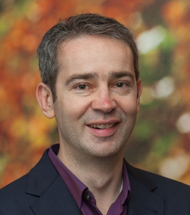New Approaches to Popular Sovereignty, a discussion at a Princeton workshop co-sponsored by the ICS
It was presented by the James Madison Program in American Ideals and Institutions of this American university and was funded by the Ministry of Economics and Competitiveness.

PHOTO: Manuel Castells
Princeton University (USA) held the workshop 'We, the People:RethinkingNarratives of Popular Sovereignty' on September 22, 2017. It was co-sponsored by the Institute for Culture and Society (ICS) of the University of Navarra and the Ministry of Economics and Competitiveness.
The activity is related to a project of David Thunder, researcher of 'Religion and Civil Society' of the ICS, on a new paradigm of social order and self-government, the associative pluralism. This proposal seeks to give effective representation to the various associations present in society and to delegate a large part of the tasks of government to local levels. David Thunder develops it thanks to a scholarship Ramón y Cajal of the Ministry.
During the workshop, the expert focused from a critical point of view on popular sovereignty and self-government. He started from the idea that the modern state "is based on the notion that its citizens, by authorizing officials to govern on their behalf, can confer their collective power on state institutions, and thus constitute themselves as a 'sovereign people,'" he explained.
He argued that various thinkers doubt the usefulness of this notion and its institutionalization through representative democracy: "Along with its institutional baggage, the notion of 'sovereign people' tends to facilitate the domination of majoritarian and elite political processes and outcomes, diverting them away from the true interests of the affected parties".
The purpose of the work he presented was "tooffer a diagnosis of the inadequacy of the sovereign state as framework for rational self-government, how it tends to legitimize Structures uniform forms of government that are inadequate for a complex and plural society," he said.
The event also featured two other speakers from U.S. centers: Paulina Ochoa, from Haverford University, and Barbara Buckinx, from Princeton. Boleslaw Z. Kabala, from Princeton, presented the final conclusions.
The democratic people as a processIn her discussion paper, Paulina Ochoa described the paradoxes that arise when defining a democratic people and the discussion on the nature and function of the demos in a democracy.
"Scholars' definitions and judgments of populism depend on whether you conceive of 'The People' as a historical fact - as populists do - or as a hypothetical ideal to guide legislation - the liberals' view," he noted. His proposal consisted in taking into account the democratic people as a process.
Barbara Buckinx justified the extension of 'citizenship' status to non-citizen residents. The specialist critically evaluated some proposals that could provide an answer to the problem of the latter and suggested alternative ways for States to address their claim.





